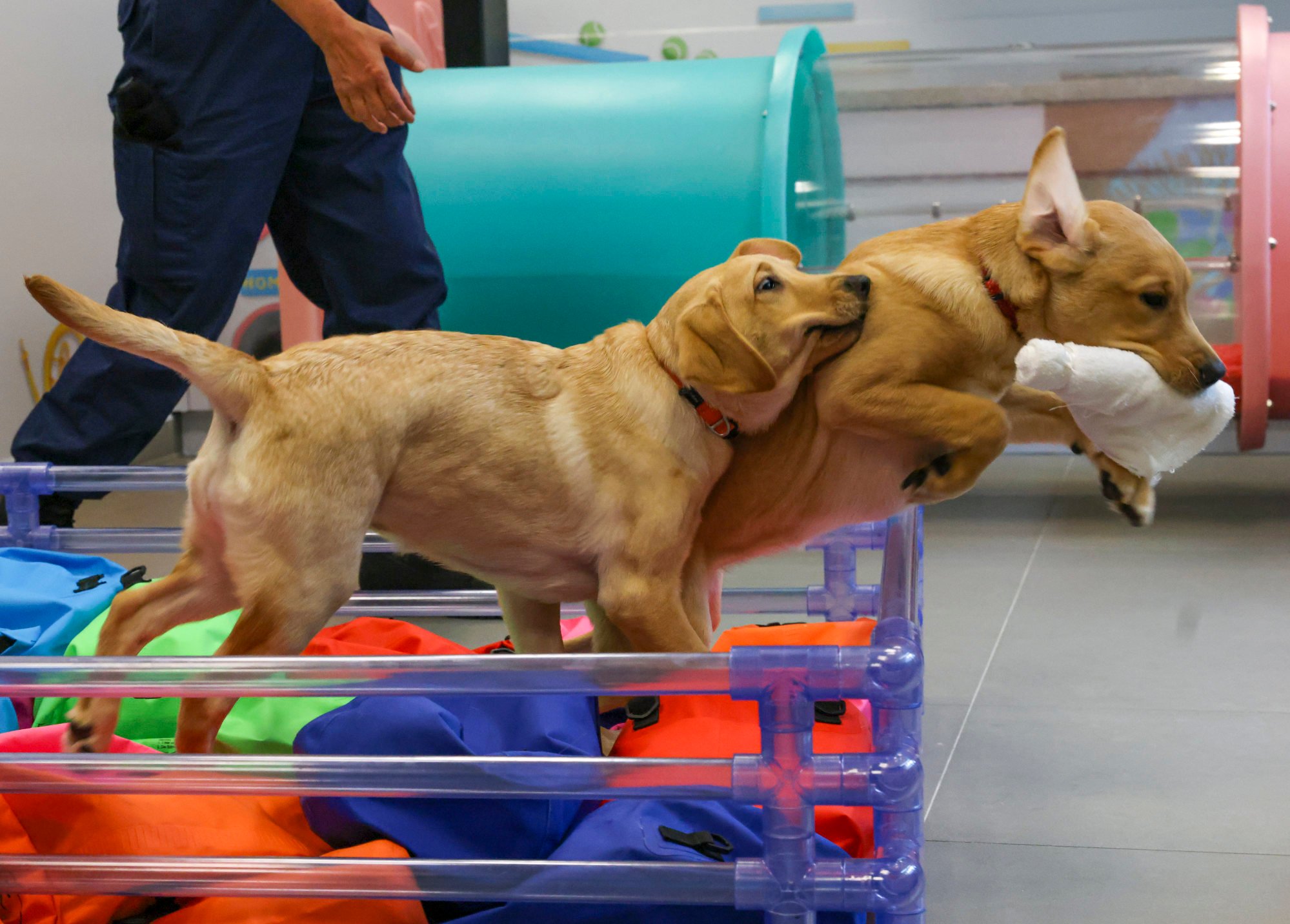
8 Labrador puppies bred to detect drugs, explosives under programme between customs, Hong Kong airport’s security company
- Litter comprises five males and three females, all about four months old, under first-ever programme
- Dogs chosen based on age, physical condition, working attitude, sense of smell, lack of blood relation and hereditary diseases
Eight Labrador puppies have been bred under a first-ever joint programme between Hong Kong customs and a company responsible for security at the city’s airport to ensure a stable supply of low-cost detection dogs.
The animals, all from the same litter, came about as a result of a collaboration between the Customs and Excise Department and Aviation Security Company in July last year under an arrangement that includes sharing facilities and carrying out joint training and drills.
Customs currently has 71 detection dog teams responsible for finding drugs, explosives, cash and firearms. The security company’s canine unit has 10 dogs.

“Through the breeding programme, not only can we replenish our supply of high-quality detection dogs, but also share with each other our experience in breeding puppies,” Joy Wong Sek-yan, customs’ deputy head of land boundary command, said on Thursday. “This is beneficial for the long-term development of the dog handling teams on both sides.”
The litter comprises five males and three females, all about four months old. Their names are Dolly, Elly, Faddy, Eagle, Nico, Dolby, Hunter and Kilo, with initials that spell “Defend HK”.
Four-year-old Rosie, the mother of the litter, is a Labrador detection dog belonging to customs, while the two-year-old father, Hugo, works with the airport security company.
According to Wong, the dogs were chosen based on their age, physical condition, working attitude, sense of smell, their lack of blood relation and hereditary diseases.

The puppies have received training since they were about eight weeks old, with games used to improve their social skills and senses. Tools that mimic their working environment were also deployed, such as tunnels, piles of water-filled bags and a balance beam.
Under an agreement between the two organisations, six dogs will go to customs, where they will receive further training on detecting drugs and explosives after they reach the ages of nine months to one year.
The remaining two will be handed to the airport security company after they receive necessary vaccinations. They will be trained to detect firearms, ammunition and explosives.
Hong Kong customs’ 4 sniffer dogs report for detection duty at airport
This is not the first time the department has collaborated with others to breed dogs. It previously worked with the police, Correctional Services Department and Fire Services Department between 2016 and 2021.
Customs previously bought detection dogs from overseas, but their long-term goal is to breed their own dogs, according to Wong, due to high costs and uncertainties associated with overseas procurement.
Nearly 70 per cent of all dogs added in the past two years by customs, the Fire Services Department and the security company were locally bred.

